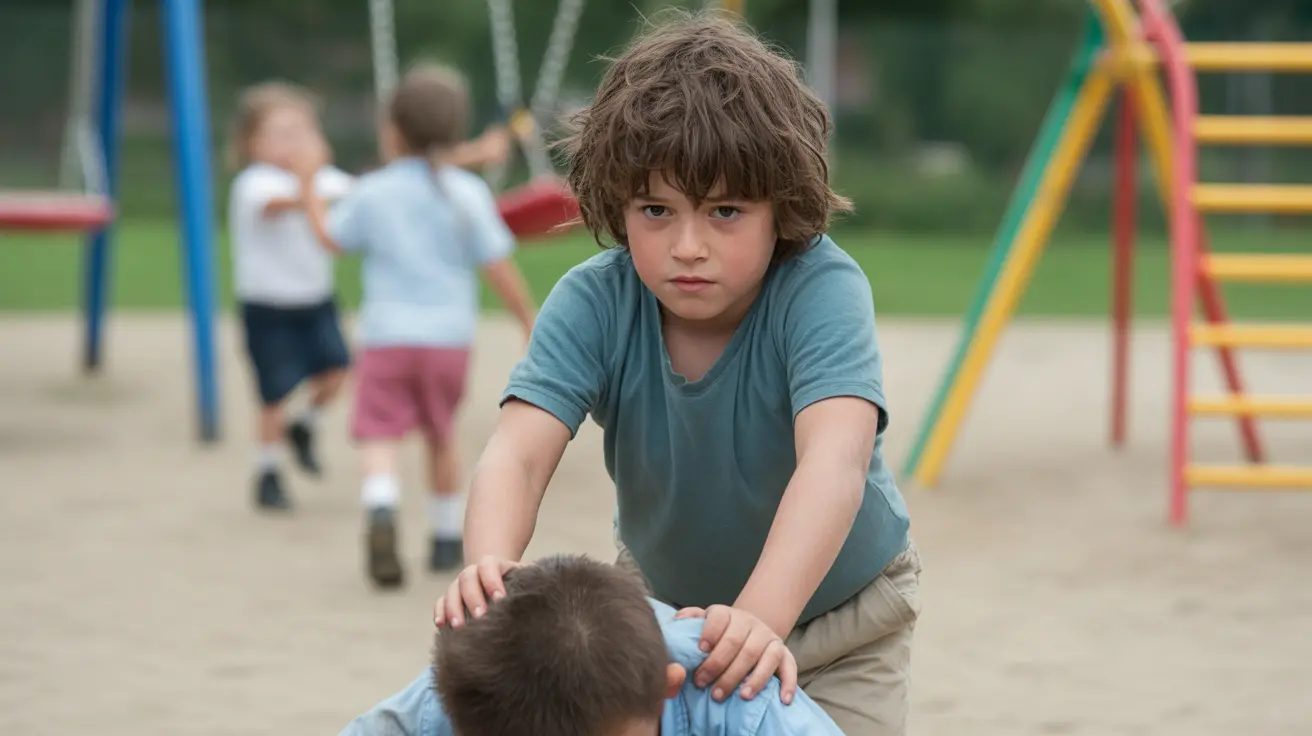Recognizing antisocial personality disorder (ASPD) traits in children is crucial for early intervention and prevention. While a formal diagnosis of ASPD cannot be made until adulthood, certain behavioral patterns and warning signs may emerge during childhood, often manifesting as conduct disorder or oppositional defiant disorder.
Parents, educators, and healthcare providers need to understand these early indicators to ensure children receive appropriate support and intervention. Early recognition and treatment can significantly impact the trajectory of behavioral development and potentially prevent the progression to adult ASPD.
Early Warning Signs and Behavioral Patterns
Children who may be at risk for developing antisocial personality disorder often display distinct behavioral characteristics:
- Persistent aggression toward people or animals
- Deliberate destruction of property
- Frequent lying or manipulation
- Serious violations of rules
- Lack of remorse or empathy
- Difficulty maintaining friendships
- Poor impulse control
- Persistent defiance of authority figures
It's important to note that while these behaviors may be concerning, they must be persistent and significantly impact multiple areas of the child's life to warrant professional evaluation.
Understanding the Root Causes
The development of antisocial behaviors in children typically involves a complex interplay of various factors:
Genetic Factors
Research suggests that genetic predisposition can play a significant role in the development of antisocial behaviors. Children with family members who have ASPD or other personality disorders may have an increased risk.
Environmental Influences
Several environmental factors can contribute to the development of antisocial behaviors:
- Exposure to trauma or abuse
- Inconsistent parenting styles
- Lack of appropriate supervision
- Poverty and social disadvantage
- Exposure to violence
- Peer rejection or negative peer influences
Diagnosis and Assessment Process
The diagnostic process for children showing antisocial behaviors is comprehensive and typically involves:
- Detailed behavioral assessments
- Psychological evaluations
- Parent and teacher interviews
- Observation in different settings
- Medical examinations to rule out other conditions
Mental health professionals may diagnose conduct disorder or oppositional defiant disorder in children who show persistent antisocial behaviors, as these conditions often precede adult ASPD.
Treatment Approaches and Interventions
Early intervention is critical for children showing antisocial behaviors. Treatment typically involves a multi-modal approach:
Therapeutic Interventions
- Cognitive Behavioral Therapy (CBT)
- Family therapy
- Social skills training
- Anger management programs
- Parent management training
Educational Support
Schools play a crucial role in supporting children with antisocial behaviors through:
- Specialized behavior management plans
- Academic support services
- Regular communication with parents
- Positive reinforcement strategies
- Structured learning environments
Prevention Strategies
Preventing the development of antisocial personality disorder requires a comprehensive approach:
- Early identification of at-risk children
- Consistent positive parenting practices
- Strong support systems at home and school
- Regular mental health check-ups
- Development of emotional regulation skills
- Building healthy peer relationships
Frequently Asked Questions
What are the early signs of antisocial personality disorder in children?
Early signs include persistent aggression, frequent lying, lack of empathy, property destruction, and serious rule violations. These behaviors must be consistent and significantly impact the child's daily functioning across multiple settings.
What causes antisocial behavior in children and how do genetics and environment contribute?
Antisocial behavior results from a combination of genetic predisposition and environmental factors. Genetic influences can create vulnerability, while environmental factors such as trauma, inconsistent parenting, or exposure to violence can trigger or exacerbate antisocial behaviors.
How is antisocial personality disorder in children diagnosed and when does it develop into adult ASPD?
Children cannot be diagnosed with ASPD directly, but may be diagnosed with conduct disorder or oppositional defiant disorder. These conditions, if left untreated, may develop into ASPD in adulthood. Diagnosis typically involves comprehensive behavioral assessments and professional evaluation.
What treatment options are available for children showing antisocial behaviors or conduct disorder?
Treatment options include cognitive behavioral therapy, family therapy, social skills training, and parent management training. A comprehensive treatment plan often combines multiple approaches tailored to the child's specific needs.
How can early intervention help prevent antisocial personality disorder from developing in adulthood?
Early intervention can help children develop better emotional regulation, social skills, and coping mechanisms. It can also address underlying issues, strengthen family relationships, and provide necessary support systems, potentially preventing the progression to adult ASPD.




